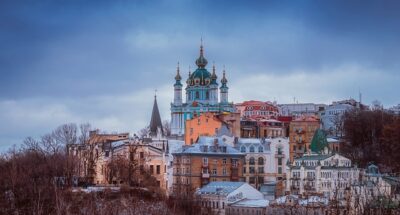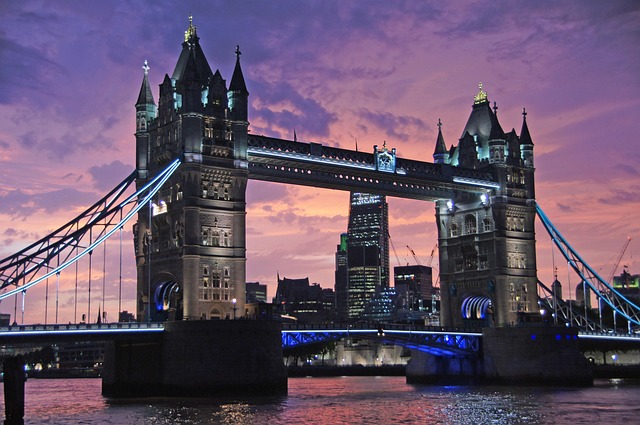 Many of us wonder why the war is dragging on, both those who side with Ukraine and Russia. We see a protracted conflict with no major territorial gains, between partially equal armies, where the Russians have the demographic and economic advantage of being a larger country. And the longer the war continues, the greater the chance that Putin’s men will emerge victorious. Here is an attempt to summarize the conflict and where we may be headed.
Many of us wonder why the war is dragging on, both those who side with Ukraine and Russia. We see a protracted conflict with no major territorial gains, between partially equal armies, where the Russians have the demographic and economic advantage of being a larger country. And the longer the war continues, the greater the chance that Putin’s men will emerge victorious. Here is an attempt to summarize the conflict and where we may be headed.
Unprovoked attack?
How is it that the corrupt country of Ukraine has such a well-equipped army, with ingenious defences all over the eastern front?
Yes, it’s strange. It should have been a walkover victory for the Russians, which is what they thought, as they initially went in with a relatively small force, mostly to scare the Ukrainians to the negotiating table. But that tactic did not work, and the Russians mobilized and eventually sent a regular army to assist the mercenaries of the Wagner group, the Chechens and the Donbas militia. These three groups still form the core of the fighting forces, while the regular army is usually placed behind them. This does not resemble the Soviet-era Russian army, but is more reminiscent of the Czar’s motley troops during the days of the Russian Empire. Perhaps this could be a hint of where we are heading?
Back to my thoughts, how can the banana republic of Ukraine have such a well-trained and well-equipped defense?
This is a question that is rarely addressed by the mainstream media. The fact is that the US and NATO have been training the Ukrainians for many years, providing them with weapons and helping them to build their defence positions in the east. The Ukrainian fighting machine was not built overnight.
This is at odds with the fact that the Russians attacked completely unprovoked. And this is the image spread in the media, that Putin started the conflict for no reason whatsoever, that the Ukrainians are pure as snow. Even though NATO has been training and arming Ukraine probably since 2014? Eight years before the war broke out.
Ok, but the Ukrainians had to defend themselves after the Russian annexation of Crimea. The Russians were a direct threat. What would they do?
Was the Euromaidan actually a coup d’état?
The Russians argue that elected Ukrainian President Viktor Yanukovych was deposed in a coup d’état in 2014, encouraged by Washington, the event known in the West as Euromaidan and mostly described as a peaceful popular uprising. The annexation of the Russian-speaking and militarily strategic Crimean peninsula was the Russian response to the coup. Since the revolution, Ukrainian politicians have changed their stance and become pro-US. Moreover, the Ukrainians have taken a very aggressive line in the East, bombing the civilian population of the breakaway republics since then, with +10,000 civilian deaths.
The outbreak of war in 2022 did not come as a surprise and was not unprovoked, regardless of who started the unrest in 2014. Most people realize that there is something strange going on.
For some reason it is important to preserve the image of an innocent Ukraine being attacked unprovoked, so much so that Russian media is censored in the West. Note that even the Soviet newspaper Pravda was not censored during the Cold War. Pluralism and debate are apparently out of fashion.
Negotiations on language and municipal autonomy in the East
The Ukrainian leadership could have sat down at the negotiating table and allowed eastern Ukraine to retain its language and increased autonomy, without sacrificing hundreds of thousands of young men, and the nation of Ukraine would probably have remained intact. There were already two agreements, called Minsk 1 and Minsk 2, which could have been continued in that direction. But fate did not want that; perhaps there were forces in Washington that wanted to use Ukraine as a proxy for their power ambitions in the region?
Isolating and locking in Russia
American neo-conservative think tanks have long talked about containing and isolating Russia, and they would not mind if the country and its resources were divided into smaller, more manageable pieces. Of course, the Russians have analysed these ideas and how they have affected US foreign policy in general. And they note that NATO countries and its bases are increasing along the borders. American expansion eventually becomes a real threat, and the war in Ukraine is seen as a decisive factor by the Russians; the war becomes existential, it must be won for the Russian nation to continue to exist.
The war was initially not as existential for the Ukrainians, as I said, they could have signed a regional agreement with the eastern part of the country. There are many countries where different languages/dialects are spoken and there is local self-government. Moreover, Ukraine is a young nation, and some border demarcations may have been made without real thought, which may have consequences.
Note that multi-ethnic nations are always faced with such potential rifts, and if they can’t solve them, they will eventually break up, but it doesn’t have to lead to war, or world war.
Did the US fuel the conflict?
The US and NATO can of course be painted as the villains of the piece. They have deliberately encouraged a regional feud, which could have been settled at the desk, and let it escalate it into a major conflict, in which many Western countries are now involved as arms suppliers and financiers. Huge amounts of taxpayers’ money have been plowed into the war. The latest development is that the Russians have broken the defence line at Bakhmut, and NATO is threatening to send older model F-16 fighter jets. Previously, the Ukrainians have been supplied with Patriot missiles.
However, the Ukrainians are not trained to fly these planes; it will take a long time to train them. And besides, the Russians have already knocked out the Ukrainian air force at the beginning of the war. Presumably Russian anti-aircraft and fighter planes will be able to withstand the new planes, which won’t be in place for a few years. By then, the war may already be over? If the planes even make it to the front. The Russians have recently used supersonic missiles to blow up large weapons depots before the weapons even reach the battle line.
Perhaps the Americans are deliberately sacrificing the old weapons systems so that their allies will buy new ones, to the benefit of the domestic arms industry? Who knows? The logic of this war is not entirely clear. And perhaps priorities are changing along the way?
Is everything going according to the US plan?
The Americans probably thought that the superior and NATO-trained Ukrainian army would take the Russians by storm. And that the loss would put Putin in a weak political position, eventually forcing him to resign and a more US-friendly president to take over.
There are a number of problems with this line of reasoning, including the underestimation of the Russian military and its weapon systems, which are far more capable than previously thought. The Russians relatively quickly adopted a strategy that does not concentrate on capture of land, but instead through a constant artillery rain minimize the Ukrainian war effort, without having to sacrifice as many men. The Americans are an air and sea power, they are probably lousy advisors when it comes to this kind of slow war of attrition in the open field.
And on the other hand, incorrect assessments have been made of Putin’s leadership; he is obviously a rather cautious politician by Russian standards anyway. There are worse hawks waiting in the wings. If Putin were to resign, the likelihood is that we would have a more aggressive president, who would probably launch a full-scale bombardment of Ukraine and its civilian population, of which we have seen little so far.
The war is mostly concentrated in the east, which also argues against a full-scale invasion, as often reported by the media. Nor does it explain the influx of refugees to Europe, as war is not present throughout the country; Ukrainians can take care of their own countrymen. Rumour has it that only 20-25 million Ukrainians remain in the country out of a once 36 million. These are questions we will return to after the war. How did the country depopulate so quickly?
The image of underdeveloped Russia
The image of Russia as a full-blown dictatorship, with drunken soldiers, rusting industries and poor weapons systems is partly false. While Russia is an authoritarian state, absolutely, there is a loud public discourse and many politicians, including his old comrade-in-arms Medvedev, think Putin is far too nice and cautious. However, Putin is very popular with the people, his numbers will exceed Biden’s by far, no matter what we think about it.
As for the arms industry, the Russians have large-scale heavy industry, which guarantees mass production of both simple and more sophisticated systems. The Americans forgot that they were dealing with a nuclear power, which has a space program, as well as its own production of everything from fighter jets to toasters, and raw materials and food production in abundance. As things stand, the Russians will win the war.
A multi-power world
What the West will ultimately learn is that their democratic system does not automatically give them the moral right to interfere in the affairs of other countries. Even if we are dealing with dictators, semi-democracies or mixed systems. It simply costs too much to challenge another great power. How the country is governed is not relevant to the conflict argument. In this way, a number of great powers could achieve a kind of balance of terror, preferably with written rules and agreements, like the Congress of Vienna after the Napoleonic Wars. The unipolar era, where the US is the sole superpower, is over; it was a brief phenomenon in the 1990s.
We live in a multipolar world with three or four major powers, the US/Europe, China and Russia, and with India, Brazil, Iran and others on the list of candidates. And all these empires suffer from democratic deficits, in different ways, including the EU’s bureaucratic factory in Brussels. So far, the US and Europe are allies, but we are geographically close to Russia and sooner or later we will have to repair the friendship, both for energy supply and trade, and for the security situation. We need to achieve peace and stable borders, and this will require sacrifices from both sides. And we will soon have a new president in Washington, which could lead the US to pursue a more isolationist policy.
As ties with its big brother on the other side of the Atlantic fade, Europe will become a power in its own right. A rather lost and divided power, but a power nonetheless. With strong industries and human capital, we at least have the potential to become the most prominent power of them all. And I believe that Russia may be part of this European alliance. Russian raw materials, foodstuffs and heavy industry combined with European science and sophisticated manufacturing is of course a combination that neither the US nor China would appreciate.







